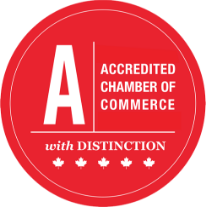In March of 2020 the world came to a standstill due to the Covid-19 pandemic. The Ontario government called a state of emergence and immediate shut down of all non-essential businesses in hopes of “flattening the curve” of the pandemic. While this was a decision made with the best interest of the health of Ontarians, it did have both short term and long-term effects on the provincial economy. In the short term, many Ontarians were laid off from their jobs, small businesses closed, and unemployment skyrocketed. While these effects were felt across all aspects of the province, they disproportionately impacted women.
Throughout the Covid-19 pandemic women were less likely to receive government aid, more likely to be laid off, and more likely to have to close their businesses. This is largely since the sectors which were most impacted by the pandemic being the same sectors which primarily hire women, such as the hospitality and service industries. These are also the industries more likely to have women run businesses, which are statistically smaller, newer, and less well funded then comparable male owned businesses. In fact, many of the women owned businesses have no other employees meaning that they were ineligible for government funding during the numerous lock downs. These inequalities are exasperated in marginalized women, such as racialized women, those with disabilities and signal mothers. In addition to the economic impact on women due to the pandemic, there has also been a rise in domestic violence, and violence against women. Despite all these hurdles, women have led the front-line response to the pandemic.
Despite women being the leaders of the pandemic, they have been largely left out of the discussion surrounding pandemic recovery. Now is the moment to add women’s voices back and leading a “she-covery”. In pursuit of this goal, the Discover Ability Network, PARO center for Women Enterprise, CCRW, and DAWN (Disabled Women’s Network of Canada) hosted “Taking Control- Economic Independence for Women with Disabilities”. Visit Youtube to rewatch this conversation and to learn more about the impact of the pandemic on women and how women can lead the recovery effort, while gaining tools and resources to advance women’s careers.




